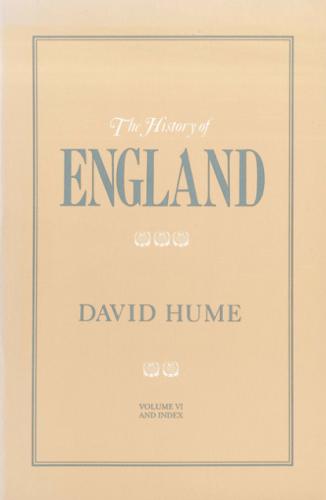The History of England Volume VI. David Hume
together with its great naval power, has always occasioned other means of security, however requisite, to be much neglected amongst us: And the parliament showed here a very superfluous jealousy of the king’s strictness in disciplining the militia. The principles of liberty rather require a contrary jealousy.
The earl of Bristol’s friendship with Clarendon, which had subsisted, with great intimacy, during their exile and the distresses of the royal party, had been considerably impaired since the restoration, by the chancellor’s refusing his assent to some grants, which Bristol had applied for to a court lady: And a little after, the latter nobleman, agreeably to the impetuosity and indiscretion of his temper, broke out against the minister in the most outrageous manner. He even entered a charge of treason against him before the house of peers; but had concerted his measures so imprudently, that the judges, when consulted, declared, that, neither for its matter nor its form, could the charge be legally received. The articles indeed resemble more the incoherent altercations of a passionate enemy, than a serious accusation, fit to be discussed by a court of judicature; and Bristol himself was so ashamed of his conduct and defeat, that he absconded during some time. Notwithstanding his fine talents, his eloquence, his spirit, and his courage, he could never regain the character, which he lost by this hasty and precipitate measure.
Decline of Clarendon’s credit.
But though Clarendon was able to elude this rash assault, his credit at court was sensibly declining; and in proportion as the king found himself established on the throne, he began to alienate himself from a minister, whose character was so little suited to his own. Charles’s favour for the catholics was always opposed by Clarendon, public liberty was secured against all attempts of the over-zealous royalists, prodigal grants of the king were checked or refused, and the dignity of his own character was so much consulted by the chancellor, that he made it an inviolable rule, as did also his friend, Southampton, never to enter into any connexion with the royal mistresses. The king’s favourite was Mrs. Palmer, afterwards created dutchess of Cleveland; a woman prodigal, rapacious, dissolute, violent, revengeful. She failed not in her turn to undermine Clarendon’s credit with his master; and her success was at this time made apparent to the whole world. Secretary Nicholas, the chancellor’s great friend, was removed from his place; and Sir Harry Bennet, his avowed enemy, was advanced to that office. Bennet was soon after created lord Arlington.
Though the king’s conduct had hitherto, since his restoration, been, in the main, laudable, men of penetration began to observe, that those virtues, by which he had, at first, so much dazzled and enchanted the nation, had great show, but not equal solidity. His good understanding lost much of its influence by his want of application; his bounty was more the result of a facility of disposition than any generosity of character; his social humour led him frequently to neglect his dignity; his love of pleasure was not attended with proper sentiment, and decency; and while he seemed to bear a good will to every one that approached him, he had a heart not very capable of friendship, and he had secretly entertained a very bad opinion and distrust of mankind. But above all, what sullied his character in the eyes of good judges was his negligent ingratitude towards the unfortunate cavaliers, whose zeal and sufferings in the royal cause had known no bounds. This conduct however in the king may, from the circumstances of his situation and temper, admit of some excuse; at least, of some alleviation. As he had been restored more by the efforts of his reconciled enemies than of his ancient friends, the former pretended a title to share his favour; and being, from practice, acquainted with public business, they were better qualified to execute any trust committed to them. The king’s revenues were far from being large, or even equal to his necessary expences; and his mistresses, and the companions of his mirth and pleasures, gained by solicitation every request from his easy temper. The very poverty, to which the more zealous royalists had reduced themselves, by rendering them insignificant, made them unfit to support the king’s measures, and caused him to deem them a useless incumbrance. And as many false and ridiculous claims of merit were offered, his natural indolence, averse to a strict discussion or enquiry, led him to treat them all with equal indifference. The parliament took some notice of the poor cavaliers. Sixty thousand pounds were at one time distributed among them: Mrs. Lane also and the Penderells had handsome presents and pensions from the king. But the greater part of the royalists still remained in poverty and distress; aggravated by the cruel disappointment in their sanguine hopes, and by seeing favour and preferment bestowed upon their most inveterate foes. With regard to the act of indemnity and oblivion, they universally said, that it was an act of indemnity to the king’s enemies, and of oblivion to his friends.
Конец ознакомительного фрагмента.
Текст предоставлен ООО «ЛитРес».
Прочитайте эту книгу целиком, купив полную легальную версию на ЛитРес.
Безопасно оплатить книгу можно банковской картой Visa, MasterCard, Maestro, со счета мобильного телефона, с платежного терминала, в салоне МТС или Связной, через PayPal, WebMoney, Яндекс.Деньги, QIWI Кошелек, бонусными картами или другим удобным Вам способом.
